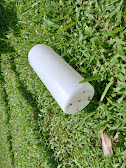Ideas for Repurposing Plastic Items
🌾🌻🍶🌱♻
Plastic waste persists as a pivotal concern when it comes to waste accumulation and pollution. Undoubtedly, single-use plastics and disposable items are a normative part of daily life, and they unfortunately cannot be broken down quickly through methods such as composting. Consequently, repurposing plastics, though not a perfect solution, becomes a viable method of reducing the quantity of plastic waste disposed of each day.
Here are some simple and functional ideas for repurposing plastic items:
Plant Pots 🌱
A large portion of items that we buy come in plastic tubs, including yogurt, ice-cream, and even more so with the pandemic, disinfectant wipes. These can be easily turned into pots for small plants. This can be done by cutting bottles in half or on one side, or poking holes into the bottom of plastic containers using a heated metal icepick or screwdriver, a sharp object, or a drill. The plastic container can now act as a planter for kitchen gardens with seasonings and small vegetables, as well as for flowers and smaller decorative plants.
Stationary Holders or Dividers 📏
Additionally, plastic bottles, cups, and containers can easily be used to organize stationary, craft materials, or any other genre of supplies. Individuals can collect containers over time, and have organized sets of storage cups to categorize their possessions and keep organized.
Storage Containers 🍶
Plastic containers, bottles, and jugs can be cleaned and repurposed as storage. They can be used as an airtight vessel for grains and dry foods. They can be used to store large amounts of water during shortages, and seasonal homemade drinks like sorrel during Christmas. They can similarly be used to store other food items, and organize miscellaneous items, such as coins.
Watering Cans ☔
Larger plastic jugs and bottles can be repurposed into watering jugs or cans by poking small holes on a given point on the body. Watering cans are beneficial since they can assist with reducing overwatering, water wastage, and potential damages to fragile plants from heavier water streams.
Bird Feeders 🐦
Individuals can also turn plastic bottles and containers into bird feeders, containing nuts and seeds, as well as water. They can be cut, reconstructed, and hung on trees or around homes to provide a rest stop for birds. This also has greater environmental implications since it provides benefits to local wild-life.
Other Creative Crafting Projects include:
- Using and shredding plastic bottles to make brooms.
- Woven, stitched, or heat-sealed reusable plastic bags made from other plastic packages.
- Plastic scoops.
- Plastic bottle water sprinklers.
There are many methods for repurposing plastic items, inclusive of cleaning and reusing containers, plastic bags, and zip-lock bags. Individuals can also ensure that if they are unable to repurpose plastics, their waste is still properly disposed of, or sent to a recycling center.
If you have any inventive methods of repurposing plastics then be sure to share them with us!



